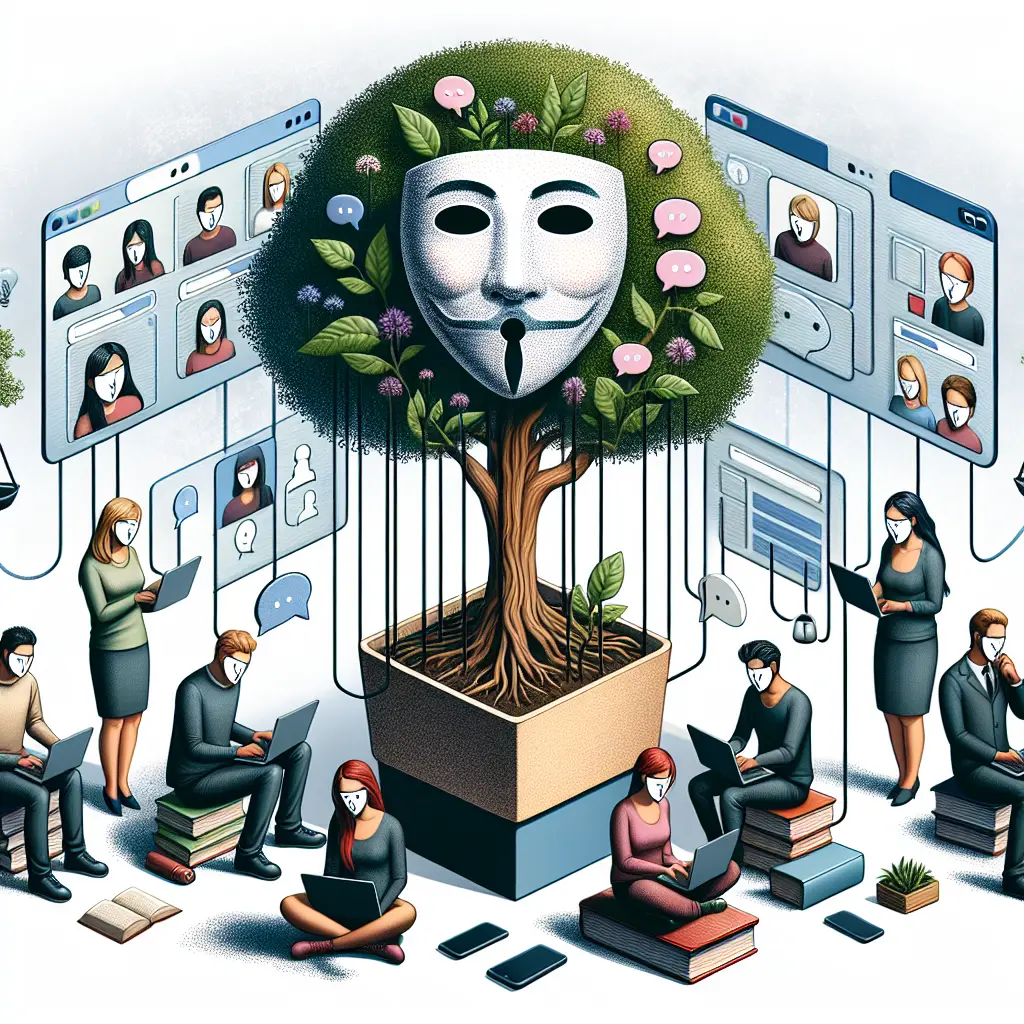
In the ever-evolving landscape of digital communication, the rise of anonymous conversations has sparked a complex dialogue about their impact on social skills. As we navigate through various platforms that offer privacy in communication, it's crucial to understand how these interactions shape our interpersonal abilities and the broader implications they have on our social fabric.
Anonymous Conversations and Social Skills Development
The allure of anonymous conversations lies in their promise of a judgment-free zone where individuals can express themselves without fear of repercussion. This aspect of online anonymity impact has been crucial for people who struggle with social anxiety or those who feel marginalized in face-to-face settings. Sites like Omegle, anonymous social networks, and various chat applications allow users to hone their conversational skills in a less intimidating environment, potentially boosting their confidence in real-world interactions.
However, developing social skills in an anonymous setting can be a double-edged sword. While some may find a safe space to explore and develop their communication abilities, the lack of accountability can also foster behaviors that wouldn’t typically be exhibited in identified scenarios. This raises questions about the transferability of these digital communication skills to in-person contexts.
The Dark Side of Online Anonymity
Recent news underscores the potential dangers associated with anonymous online environments. For instance, a man was convicted for exploiting over 100 children through platforms like Omegle, Snapchat, and TikTok, engaging in what is known as 'sextortion' (NBC News, 2022). Such cases highlight the critical need for vigilance and stricter monitoring on these platforms to protect vulnerable users, particularly minors.
Further complicating the landscape are legal battles such as the Section 230 Preempts FOSTA Claim—Doe v. WebGroup Czech Republic (Harvard Law Review, 2023), which challenge the responsibilities of platform providers in policing user interactions. These legal precedents are shaping how privacy and safety are managed in digital spaces, influencing the dynamics of social interaction online.
Effects of Anonymous Chats on Interpersonal Skills
The effects of anonymous chats on interpersonal skills online are varied. On one hand, they provide a platform for practicing conversational tactics without social repercussions, potentially enhancing one's ability to communicate. On the other hand, the lack of non-verbal cues and real-time feedback that are integral components of face-to-face communication might impede the full development of social skills. Researchers at Stanford University (2021) suggest that prolonged reliance on virtual communication effects could lead to difficulties in interpreting and responding to physical social cues.
Impact of Anonymity on Social Interaction Norms
Anonymity can significantly alter how norms and ethics are perceived and practiced within social interactions. The privacy afforded by online platforms often leads to a phenomenon known as 'disinhibition effect', where users feel disconnected from their actions and their consequences (Journal of Online Behavior, 2022). This can result in more candid but sometimes harmful exchanges that would typically be controlled in identified environments.
Digital Communication Skills: A New Educational Frontier
As virtual environments become more ingrained in our daily lives, the emphasis on digital communication skills as part of educational curriculums grows stronger. Schools and educational institutions are beginning to recognize the importance of equipping students not only with traditional social skills but also with the competencies required to navigate online platforms responsibly and effectively.
Conclusion
The impact of anonymous conversations on social skills is multifaceted and complex. While they offer a valuable practice ground for those looking to develop their communicative abilities, they also present significant challenges that could undermine interpersonal skill development. The recent incidents of abuse and exploitation on platforms like Omegle highlight the urgent need for enhanced protective measures and educational initiatives that address the unique dynamics of online communication.
As we continue to delve deeper into the realm of digital interactions, it becomes imperative that we strike a balance between leveraging the benefits of anonymous conversations and mitigating their risks. Ensuring robust privacy in communication while fostering an environment that promotes positive social interaction will be key to nurturing a digitally fluent society that upholds respect and empathy.
In closing, let us embrace the opportunities presented by communication technology impact with mindfulness and responsibility, ensuring that our journey into the digital age is safe, inclusive, and conducive to personal and communal growth.
With hopes for safer and more enriching online interactions,
Lisa Marlowe